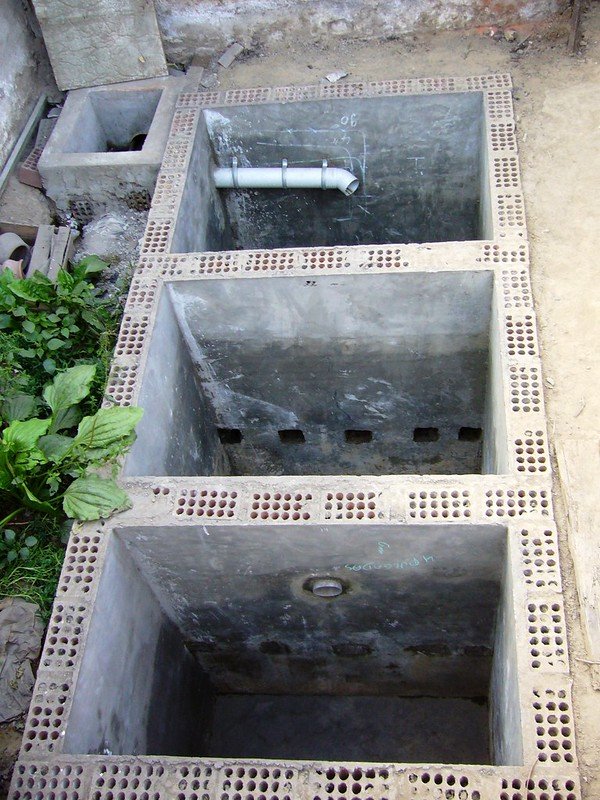Table of Contents Show
According to a recent Dude press release, septic tanks are beneficial to the environment in terms of their impact. They reduce trash, recycle water, and naturally restore water tables. It’s also suitable for the environment’s plants and fauna.
Furthermore, septic tanks are a considerably more cost-effective alternative to establishing a comprehensive sewage system. A septic system’s total design, installation, and maintenance costs are less than a public sewage system.

Many Americans are becoming increasingly concerned about their influence on the environment. Our oceans are clogged with rubbish, local wildlife’s natural home is being destroyed, and our dependence on plastic is out of control.
Our garbage and its consequences have reached levels that we can no longer control. Let’s take a look at some of the ways you may prevent difficulties by properly caring for your septic system.
Add A Bacteria Additive to Your Recipe
The septic system owners should utilize living organic bacteria that break down the presence of artificial compounds and solids in their septic system, such as detergents and soaps.
If these common home chemicals get into your septic system, they destroy the naturally occurring microorganisms that keep it running well. Bacteria additives are a low-cost insurance policy that maintains your pipes clean and clear, eliminates odors, and keeps your system running smoothly.
Read Also:
Avoid Grease
This one is significant enough to warrant its section. Grease is very harmful to your septic system. Many people believe that pouring extra oil down the drain while running hot water will help it to flow freely.
This usually works. At least, that’s how it looks in our house’s drain lines. They don’t consider what will happen once it reaches the end of the line. As the grease goes through your septic system, it solidifies and may easily block your system, causing backup and a slew of other issues.
Keep Your Drain Field Safe
Damage to your drain field is just as significant as damage to the tank itself, and it can affect how well your septic tank handles waste. You may even find that your tank backs up and overflows since it doesn’t have a good exit for the trash.
You should never park or drive on your drain field, and you should avoid planting trees or plants in this area since root penetration might obstruct the wastewater flow.
Do Not Attempt to Clean on Your Own
Cleaning your septic tank may be done using various commercial or DIY methods. This is never a good option. They have the potential to harm both the typical microorganisms that keep your system working efficiently and your septic tank.
These simple repairs may appear cost-efficient in the short term, but when it comes to fixing a broken or underperforming septic tank, you’ll quickly learn that this is a job best left to the pros.
Consider What You Throw Down the Kitchen Sink Drain
We throw a lot of stuff down the kitchen sink that can harm a septic system. Homeowners should never wash down the sink drain of coffee grinds, eggshells, medicine, produce tags, flour, and other items.
All of these things can clog pipes and obstruct screens. Also, any oil, such as cooking oil, paint, grease, or fat, should not be discarded since it may clog your septic system. The homeowners should not flush dairy items such as milk, cream, and butter due to the absence of oxygen in a septic tank.
Keep Track of Your Tank’s Status
The design of a septic tank varies depending on the kind of home or company. It would be beneficial to save all of your system’s blueprints and records to determine future maintenance requirements. These documents will also help you locate your septic tank quickly.
Maintenance By Professionals
Professional septic system maintenance is required to guarantee that your septic system is not harmful to your pocketbook or the environment. This involves tank checks and pumping regularly.
The type of system you have, the size of your family, and your tank dictate the frequency of these checks and pumpings.
This is why it’s the best choice to hire a professional to assess your family’s needs and devise a strategy for extending the life of your septic tank while reducing the likelihood of any issues.
Make Mindful Use of Water
It’s best to use as little water as possible. Your septic tank will not be overcrowded if you utilize water carefully, and untreated water may otherwise sneak into your drain field. Install water-saving bathroom fixtures and avoid doing large loads of laundry at once to save water.









